Conversations about blackness are too often from a straight, cisgender point of view. That needs to change
Being black and being gay are two equal parts of me. They are intertwined, complementing and shaping one another, writes Jemal Polson


Your support helps us to tell the story
From reproductive rights to climate change to Big Tech, The Independent is on the ground when the story is developing. Whether it's investigating the financials of Elon Musk's pro-Trump PAC or producing our latest documentary, 'The A Word', which shines a light on the American women fighting for reproductive rights, we know how important it is to parse out the facts from the messaging.
At such a critical moment in US history, we need reporters on the ground. Your donation allows us to keep sending journalists to speak to both sides of the story.
The Independent is trusted by Americans across the entire political spectrum. And unlike many other quality news outlets, we choose not to lock Americans out of our reporting and analysis with paywalls. We believe quality journalism should be available to everyone, paid for by those who can afford it.
Your support makes all the difference.Last month, I received a WhatsApp message from a university friend.
“I may have something for you”, read the words on the screen as my phone lit up – a statement that either fills you with curiosity, or dread. Driven by the former, I found that my friend, now a teacher at a secondary school, was asking if I’d be interested in speaking to sixth-form students in an assembly this October during Black History Month. When asked what I would be discussing, I was told it should cover “either being Black, or gay. Just about your experiences, what you had to face, and what you learnt”.
It was a welcome offer, yet one word stuck out to me. “Either”. I was asked to discuss “either” my racial or my sexual identity. Why not both?
For ethnic minority people who identify as LGBT+, this is a common occurrence. There are a number of instances in which I’ve felt as though I’ve had to “choose” between my sexuality and race. This includes having to “tone down my gayness” in some Black spaces, or having to not be “too Black” in gay spaces. Almost as if one is more important than the other, or that they can’t possibly coexist within the same body. Are they too radical – too controversial to be discussed at the same time or by the same person?
Conversations around blackness are often exclusively thought of, or told from a heterosexual, cisgender point of view, which often results in LGBT+ Black people being left out of the equation. Although not intentional from the founders of #BlackLivesMatter, (two of which, Patrisse Cullors and Alicia Garza identify as queer women) the movement itself has been called out occasionally for its omission of black LGBT+ people. This includes first and foremost, the Black trans women who are murdered across the world at a disproportionate and alarming rate. It also includes Black gay, bi and lesbian men and women, along with gender-nonconforming individuals. For Dame Magazine, Journalist Nyasha Junior writes: “The relative lack of attention to the mistreatment, assault, and killing of Black people who are not cisgender heterosexual (cishet) men has led to more specific hashtags and slogans.” Thus, out of #BlackLivesMatter, #AllBlackLivesMatter was born – which as the name suggests, aims to highlight the racist atrocities all Black people face, including LGBT+ individuals.
In addition, when others think of or speak about gay men, the language used usually indicates that they’re speaking about, or thinking about white men. Racism within the gay community especially is rife and well documented. A report by Stonewall in 2018 found that 61 per cent of Black LGBT+ people have experienced racism from within the “community”, ranging from nightclubs and bars, to apps.
A popular notion among many Black people is that “homosexuality is un-African” – an import from Europeans brought over through colonisation. It’s a dangerous, misleading and frankly incorrect idea, as homosexuality has existed throughout African civilisation long before Europeans forced their way onto the continent.
Ignorance across the board means that many fail to realise how racial and sexual identities intersect with one another. There are some similarities between this and those who don’t understand how gender and racial identities intersect. Have you ever heard someone say the words “women and Black people” or “women and people of colour”, failing to take into consideration that some people are – wait for it – both? There are issues that Black women will face specifically, not just because they’re Black or women, but because they are Black and women. Writer Moya Bailey coined the term “misogynoir” in 2010 in order to highlight the specific sexism that comes with being a Black woman. A portmanteau of the words “misogyny” and “noir”, misogynoir, focuses on “the specific hatred, dislike, distrust, and prejudice directed toward Black women”, which is so often overlooked.
I am a minority within a minority, which means I don’t always feel as though I entirely belong within one group. Being “too gay” or “too Black” (and even sometimes “not black enough”) isn’t exclusive within recreational groups. It can also come into play in professional circumstances which can lead to “code-switching”, a tool used in order to navigate a particular surrounding in order to “blend in” or not be “too much” for others.
I never thought I'd see such an explosion of black British LGBT+ voices in the last few years. I'd become so accustomed to not seeing “myself,” or people like me within popular culture that I didn't think such a plethora of voices would break through into the mainstream. Those that did usually hailed from the US. But figures such as MNEK, Lady Phyll Opuka, and Munroe Bergdorf have made it easier for me to even be writing articles such as this.
Being Black and being gay are two equal parts of me. They are intertwined, complementing and shaping one another. They are impossible for me to separate. One is not more important than the other and they do not define me in my entirety.
So when I speak to the sixth-form students (over Zoom) this month, I will be talking about both.
Jemal Polson is a social media manager and journalist from London

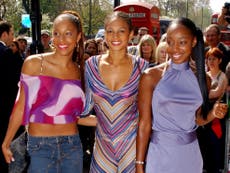
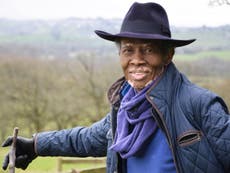
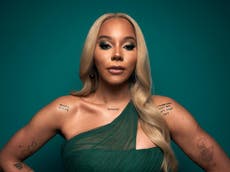
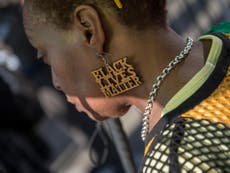
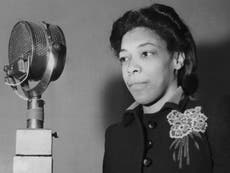
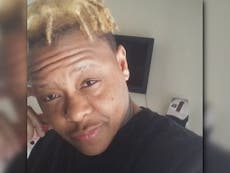
Join our commenting forum
Join thought-provoking conversations, follow other Independent readers and see their replies
Comments